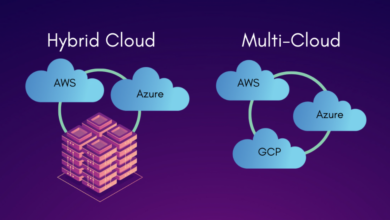Cloud And Dedicated Cloud Server Providers: 4 Main Differences

Cloud And Dedicated Cloud Server Providers. Think about building a rocket to go to the moon but powering it with a car engine. That, we both know, is not going to be successful. Now, calm down and think about your online business; you would like to dominate the online space, whether it’s an online store, service, or brand you want to build, but you make a decision to back it up with hosting that doesn’t respect your vision…
Let’s discover the differences between dedicated hosting, and cloud hosting, remember that your website is only as great as the hosting solution that powers it.
Cloud And Dedicated Cloud Server Providers

To begin, one significant disadvantage of dedicated hosting is that it can underachieve during sudden traffic spikes because the resources are repaired and don’t scale up as the traffic increases. When the resource consumption reaches its maximum, visitors experience severe deterioration in their user experience and “404 Page Not Found” errors.
Although dedicated hosting is still considered to be a far superior solution to shared hosting, it is not suitable for high-traffic websites that require a higher level of user experience for visitors. Many experts recommend that websites that use dedicated hosting consider cloud-based hosting services.
Cloud hosting is useful for sudden traffic spikes as well as situations in which the demand for website resources may increase as traffic increases. Since your website gets bigger, the cloud server adapts as well as provides the required resources to ensure uninterrupted quality service while ensuring data security.
The physical capability of a single server (dedicated server) as well as proximity to neighbors are not constraints for a cloud server (shared hosting). Furthermore, cloud hosting enables you to modify the resources with a few clicks without disrupting the service.
Performance
Customers can benefit from of the best of both kinds of hosting mentioned above by using cloud hosting. Cloud hosting allows you to scale resources down or up as needed, making it a much more adaptable and, as a result, more financially appealing system. When servers are in high demand, their capacity can be automatically increased to meet the demand without being required to pay for this capacity indefinitely. It’s similar to a heating bill in that you use what you want when you need it and only pay for what you used after the fact.
Cloud servers, unlike dedicated servers, can run on a hypervisor. A hypervisor’s role is to control capacity and allot it where it is needed based on operating system usage. With cloud hosting, each client has access to a large number of cloud servers. This allows you to dedicate computational capabilities to a specific customer if and when necessary. For example, during periods of high traffic, a website may be able to access additional capacity till it no longer requires it. Cloud servers also provide greater redundancy. When one server fails, the other servers take its place.
Security

A dedicated hosting server’s security is more susceptible than any other type of hosting because it is entirely dependent on the skills of a user or a sysadmin. As a result, a user must monitor server security, perform regular backups, as well as install security patches but also firewalls. On the opposite, in cloud hosting, the hosting provider handles all security-related issues, allowing the user to focus solely on the content of his website.
Fault Avoidance
Dedicated hosting is a more advanced type of hosting in which the customer purchases entire physical servers. This means the entire server is completely dedicated to him, with no other clients sharing it. In some cases, the client may even be able to use multiple servers which are all dedicated to him.
While dedicated servers give you complete control over your hosting, their disadvantage is that the requisite capabilities must be planned ahead of time, with enough resources as well as processing power to handle the anticipated traffic levels.
Underestimating these levels may result in insufficient resources during peak activity periods, while overestimating them may result in paying for unneeded capacity. Their drawback is that the necessary capabilities must be planned ahead of time, with adequate resources as well as processing power to manage the expected traffic levels.
Price
Customers who want their own server websites will benefit more from a dedicated server. A user can control and administer his own server with this type of server. Despite the higher prices, this type of hosting is primarily recommended if you want significant quality and responsive customer support. The cost of a dedicated server clearly varies greatly depending on the machine’s performance. However, it can cost between $50 and $1000 per month, making it more expensive than shared hosting as well as cloud hosting.
Summary
The selection of WordPress hosting is not easy. When selecting a hosting solution, ensure that it can handle current as well as projected traffic without compromising the quality of the user experience.
Conclusion: So above is the Cloud And Dedicated Cloud Server Providers: 4 Main Differences article. Hopefully with this article you can help you in life, always follow and read our good articles on the website: Cloud.tapchiai.net




